
Many people sit around bored and fill the time watching TV, chatting, or getting high.
At least worth adding to the list is thinking. My Medium,com article today suggests topics and examples of scribblings that can concretize your thinking.
Fresh ideas about career, education, the life well-led, and improving the world.



Many people sit around bored and fill the time watching TV, chatting, or getting high.
At least worth adding to the list is thinking. My Medium,com article today suggests topics and examples of scribblings that can concretize your thinking.

We all know the basics of getting a good night's sleep: Have the same routine each night, including consistent bedtime, not eating or consuming caffeine late, and keeping the bedroom cool—like hibernating bears, we sleep better when cool.
But what if those don't help enough? My Psychology Today article today offers tips.
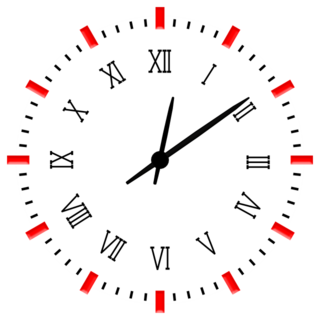
Most people would agree that time is our most valuable possession, but many people don’t treat time as such. If you don’t, might one or more of the ideas in my Psychology Today article today motivate you?

A nationwide survey of 1,210 workers found that "the overwhelming majority of workers struggle to deal with one or more annoying coworkers."
In your situation, what might you want to do? My Psychology Today article today offers suggestions.
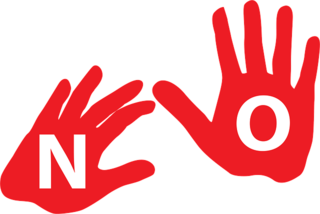
Among the most important lessons I learned in grad school weren’t
from my classes or my dissertation. They were between the cracks of
all that. I describe them in my Psychology Today article today.
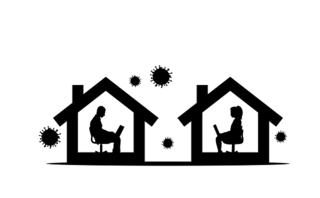 When COVID wanes sufficiently, some people will blast off into the
Roarin’ 20s: party hard, travel often, shop ‘til you drop at the mall.But many introverts
will react differently. They'll plan to largely continue their mainly
solo life, despite no longer having COVID as a socially acceptable
excuse. And the New Normal will likely make life easier for the
introvert. I explain in my Psychology Today article today.
When COVID wanes sufficiently, some people will blast off into the
Roarin’ 20s: party hard, travel often, shop ‘til you drop at the mall.But many introverts
will react differently. They'll plan to largely continue their mainly
solo life, despite no longer having COVID as a socially acceptable
excuse. And the New Normal will likely make life easier for the
introvert. I explain in my Psychology Today article today.
If you had just 8 hours left on earth, what would you do? I offer a sample in my Psychology Today article today, in hopes it makes you want to try that thought experiment.


The Optometry Game is the most effective of the tools I’ve used to help people choose a career. My Psychology Today article today adapts it so anyone can use it.
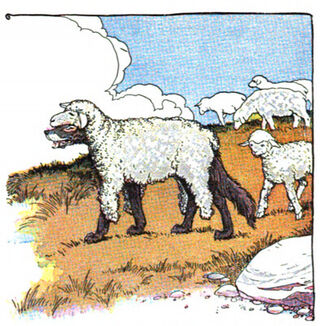
Aesop's Fables are unsparing. Hiding behind animal characters, Aesop
speaks unvarnishedly about humans' dark side, While thought of as for
children, some of Aesop's fables offer lessons for us all. I describe them in my Psychology Today article today.
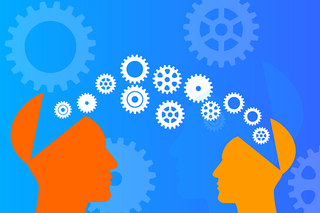

Have you spent much of your life unwanted, personally and professionally? You’ve probably spent much time trying to figure out why.
So, after just a few questions that might help to unearth any new ideas you might want to try, most of my Psychology Today article today focuses on how, moving forward, to improve the situation and to come to deserved self-acceptance.
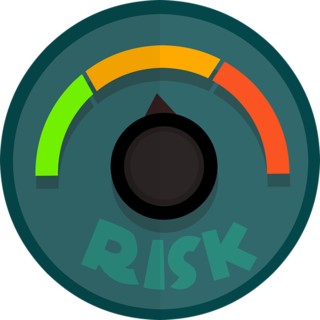
We tend to operate on autopilot but, especially with risk-taking, it’s wise to make decisions consciously. Answering these questions in my Psychology Today article today may help.

Every experienced professional has nuggets s/he’s shared with clients again and again. It’s thus tempting, if only unconsciously, to diminish their importance—These nuggets seem old hat. So the professional's tone in offering the idea, which used to be of urgency, is now flat, almost a throwaway line. And attentive clients interpret it as such. Or because you’re bored of an idea, you might not even mention it. It's old hat to you but may be fresh and important to your clients.
So consider, for each subset of the work you do, creating a written treasure trove of your most valuable nuggets, including your oldies but goodies. That may both remind you of their existence and that they’re nuggets, not throwaways.
To give you a sense of what I’m talking about here as well as to share a few of my best ideas, My Psychology Today article today offers a few favorite ideas that I haven't previously written about in much detail. At the end of the article, I offer links to posts with other favorite ideas.

Of course, many people, especially extroverts, would rather go into the office. It’s easier to get questions answered and to say hi to and take breaks with coworkers. Plus, some people like getting out of their home, which can be noisier and more stressful than the office. Some young people have told me that they feel more grown-up getting dressed up and going into a nice office.
But even if the pandemic subsides, many people will continue to work
remotely at least part of the time. So it might be comforting to recount
the Zoom-centric worklife’s advantages. I do so in my Psychology Today article today.


In a recent post, I offered four options for dealing with an asymmetrical relationship. But the advice was generic across all types of asymmetries. My Psychology Today article today offers thoughts regarding specific ones.

We tend to think of ethics regarding business, but equally important are ethics in relationships..
For example, how much should you disclose to someone you're dating or contemplating dating?
My Psychology Today article today offers thoughts on eight potential areas of disclosure.

Every relationship has some measure of asymmetry. For example, one partner is
Approaches
What might you do when an asymmetry bothers you but you don’t want to leave the relationship? My Psychology Today article today offers some options.

My Psychology Today article today describes the approach I worked out with a client today to reduce his anxiety.

You thought you lost your love and didn’t.
You thought you’d get terminated at work and were given another chance.
You had exploratory surgery and all was benign.
At that moment of reprieve, you’re likely to think, even if you’re an atheist, thank God! And you promise yourself that you’re going to do better: be kinder or tougher, work harder or less hard, live healthier or give yourself a break, whatever.
The issue is: how to sustain your motivation. Will your follow-through be no better than with your New Year’s resolutions? Perhaps one or more of the ideas in my Psychology Today article today will help.

You’d think I revere education. After all, I come from a tradition that venerates education, my PhD is in education, and the diploma gained me credibility.
Yet I am mad at education and my Psychology Today article today explains why.
Sometimes it’s not what you know or even who you know, but how you say it. My Psychology Today article today offers 11 keys to saying it well, whether a one-minute report at a staff meeting or a keynote to a cast of thousands.

I have clients who feel insecure and so they hide, whether on the job, in school, or in relationships.
I had such a client recently. My Psychology Today article today offers a paraphrase of key parts of the session.

A small percentage of my coaching clients aren’t clinically depressed but are sad, not just situationally sad but have been sad, sober, serious most of their life.
If that describes you or someone you care about, you might find my Psychology Today article today of value.

Losing your job or romantic partner is, of course, painful. My Psychology Today article today offers thoughts on how to prevent and to cope with such a loss.